
 Pantheon:
Pantheon: Greek
Class: War
Featured: Achilles, Paris, Priam, Hector, Helen, Agamemnon, Menelaus
It was the abduction of Helen, the wife of King Menalaus of Sparta, by Paris, prince of Troy, that began the war that lasted ten years, and took so many lives, resulting in the total destruction of the city of Troy, and the surrounding countryside, and the end of its dynasty.Paris, promised by Aphrodite the most beautiful woman on Earth as his wife, was told by the goddess to go to Sparta, where he met Helen, with whom he soon formed a strong bond of friendship, and then something more intimate, culminating in the eloping of Helen and Paris. The fugitive couple fled to Troy, where Helen married Paris.
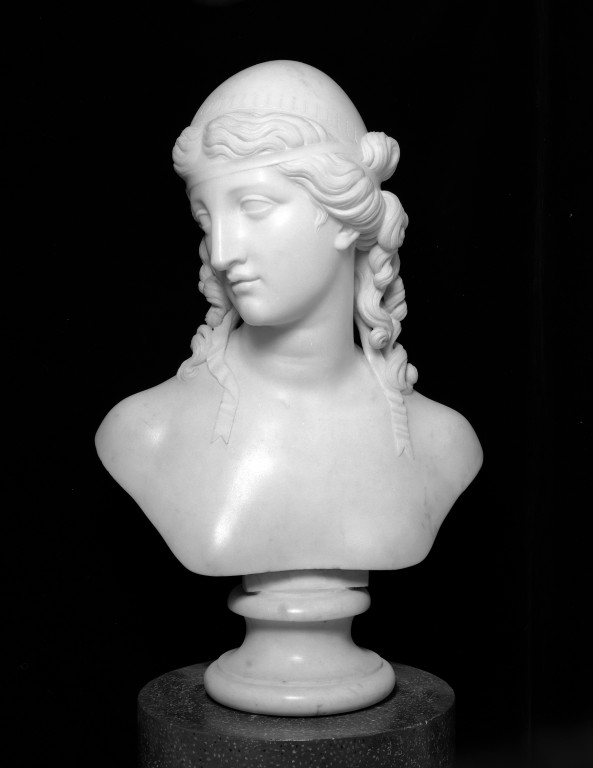
Meanwhile, Menalaus sought the advice of the wise Nestor, who told him that the only way to regain his and Helen's honour was to mount a war-party to attack Troy, and endeavour to take his wife from them by force. Acting on this advice, Menalaus set about forcing the other suitors for Helen's hand before him to make good on the oath they had sworn, that they would all rise to Menalaus' aid, should he need it, and mounting a great warfleet, sailed for Troy.
Agamemnon, Menalaus' brother, was elected to command the fleet, and they assembled at Aulis, over one thousand ships in all, the largest fleet ever mounted. While at anchor in Aulis, they observed a strange phenomenon:a serpent coiled itself around a plane tree, on which was a sparrow's nest with nine young birds therein. The snake devoured the young
birds, but on attacking the mother, was instantly turned to stone. Kalchas, the high priest, divined this omen as proof that they must fight nine years around Ilium--or Troy--and on the tenth take the city.
The Greek fleet then set sail, but landed by mistake in Mysia, where the king, Telephos, resisted the invaders fiercely. There he received a wound from Achilles, which would not heal. The Greeks returned to Aulis, and
Telephos, following them and being cured of the wound by Achilles, offered to lead the fleet to Troy, an offer the invaders gratefully accepted.
Finally reaching Troy, the Greeks met the defending forces, led by Priam's eldest son, Hector. They beat back the Trojans, but suffered considerable losses, and Agamemnon, seeing that the Trojans would not willingly hand over Helen, prepared to lay siege to the town. During the many raids that the Greeks mounted on the surrounding territories, they captured in particular Chryseis, a daughter of Chryses, a priestess of Apollo, who
appealed to the god for assistance. Apollo sent a plague to ravage the Greek forces, and Agamemnon, enquiring of Kalchas how the god could be appeased, was told that the beautiful Chryseis must be released. The Greek commander, however, accused Kalchas of being in league with Achilles, to which the Greek hero responded by withdrawing all of his forces from the Greek camp.
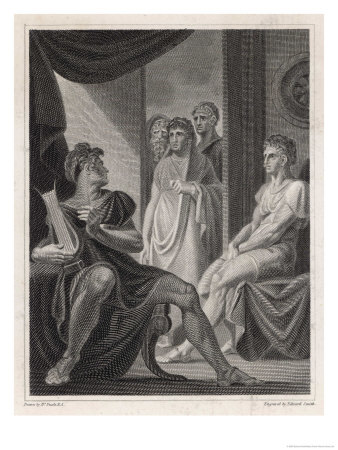
Thetis, the mother of Achilles, begged Zeus to decree that as long as her son remained at odds with his allies, the Greeks would be defeated in every encounter, and so it came to be. The Trojans, emboldened by the retreat of Achilles and their repeated successes, sallied forth from their city walls, and succeeded in driving the invaders back to their ships, where the Greeks took refuge. Agamemnon, realising that he needed
Achilles, sent emissaries to the hero's pavilion, imploring him to reconsider and rejoin the siege, promising that Achilles should have his own daughter's hand, and seven towns as a dowry. But Achilles would not relent, and the tide of battle continued to turn against Greece.
The end seemed in sight when the Trojans, under Hector, had stormed the Greek camp and set some of their ships on fire, but Patroklos begged
Achilles to loan him his famous armour, and thus clad he went against the
Trojans, pushing them back from the camp, back to the walls of Troy. But not satisfied with this, Patroklos pursued Hector himself until, in single combat with the Trojan prince, he fell. This was the spur to action that Achilles needed. Reconciling himself to his countrymen, the Greek hero strode forth, bringing his forces back to the battle.
Under Achilles' sword Hector fell, and the Trojan ranks fled in disarray, but
unappeased by the death of the hero of Troy, Achilles bound the corpse to his chariot and dragged it around the walls of the city three times, before casting it face down in the dirt, in the Greek camp. The gods were not happy with such dishonourable conduct, and they took care of the body of Hector, also softening the heart of Achilles, so that when King Priam came to respectfully beg the body of his son, Achilles gave it willingly and with great reverence. Patroklos was buried with all due honours.
As the Greeks and Trojans mourned each their fallen heroes, an army of
Amazons arrived to fight on the side of the defenders, and their leader, the beautiful Penthisilea, met Achilles in single combat, and by his hand was slain.He, however, practiced none of the indignity on her body that he had on that of Hector, praising her valour and strength, and handing over her body for decent burial to her people. There was one in the Greek camp however who felt no such kinship with the Amazon. He was called Thersites, and he stabbed Penthisilea through the eye as she lay on the ground. For this act Achilles killed him on the spot.

Diomedes, however, a relation of Thersites, was aggrieved at this treatment of his brother, and demanded of Achilles the usual sum of money, in reparation for the killing. Achilles, incensed at this, took umbrage and once again abandoned the Greek cause, taking ship to Lesbos, to which Odysseus had to be sent to bring him back. On Achilles' return, a new hero entered the Trojan camp, Memnon, son of Eos. He met and fought in single combat with the Greek hero, and as the two fought
on Earth, their respective mothers on Olympus each petitioned Zeus for victory for her son. Zeus, weighing the fate of each in the balance of Moera, found that Memnon was fated to die. Flying to the battlefield, Eos found her son already dead.
But it was not long before Achilles himself died, shot by an arrow drawn by Paris.The body of the great hero was carried back to the Greek camp by Ajax and Odysseus, fighting all the way, and buried with great pomp and splendour. Achilles' armour was offered to one of the two heroes who had brought back his body, and it was Odysseus who received it, Ajax, thinking himself unworthy, fell on his own sword and died.
Meanwhile Helenos, the son of King Priam, was captured by the Greeks and forced to tell of the manner in which the city might be taken. Helenos, like his sister Cassandra, had been endowed with the power of prophecy, and he told under duress that three things would be needed to compass victory for the Greeks. These were the bow and arrows of Hercules, at present held by Philoktetes, the assistance of Achilles' son, Neoptolemos, and the possession of the Palladium, the image of Pallas-Athene, which stood in the citadel of Troy.
The help of Achilles' boy was no problem:the youth was willing and eager to take part in the war and prove his manhood. The bow and arrows of Hercules, on the other hand, meant that Odysseus had to travel to
Lemnos, and convince Philoktetes to return with him, where the first of the defenders to fall to the Greek hero's arrows was Paris. The Trojans, afraid now to come out and face the fearsome arrows of Philoktetes, shut themselves up inside the walls of Troy. Then Odysseus stole into the city, and daringly stole the Palladium from under
the noses of the Trojans.
Victory now within their grasp, the Greeks had now to devise a method of entering the city, and for this they turned to Odysseus, who in turn
consulted Athene. The goddess suggested that Epeios, a famous sculptor, should construct a fabulous horse of wood, which would be hollowed inside, with room for a complement of Greek soldiers. This model was built, and the Greeks left Sinon bound in the attitude of a sacrifice, the horse standing outside the gates of the city, and pretended to sail away in defeat.

Although warned by Laokoon not to accept the gift, Priam had the Wooden Horse brought into the city, and also Sinon, whom he freed, and the Trojans spent the night celebrating and toasting their victory over the
superior force. Sinon it was who, when all of the Trojans had fallen into a drunken sleep, released the catch on the side of the horse and welcomed his countrymen into the city. The Greek soldiers (Odysseus and Diomedes among them) then silently opened the city gates, signalled to the ships lying off the coast, which returned. The full Greek force entered the city, descending savagely on the surprised and bleary Trojans, and slew most of them, King Priam himself falling to Neoptolemos, the Greeks torching the city and carrying off the women and riches.

Menalaus, reconciled to his now contrite wife, took Helen back with him, the other Greek heroes taking the more beautiful or noble Trojan women, and the fleet returned to Sparta. Thus ended the ten-year Trojan War, and so came to pass the prophecy made by Cassandra at the birth of Paris.


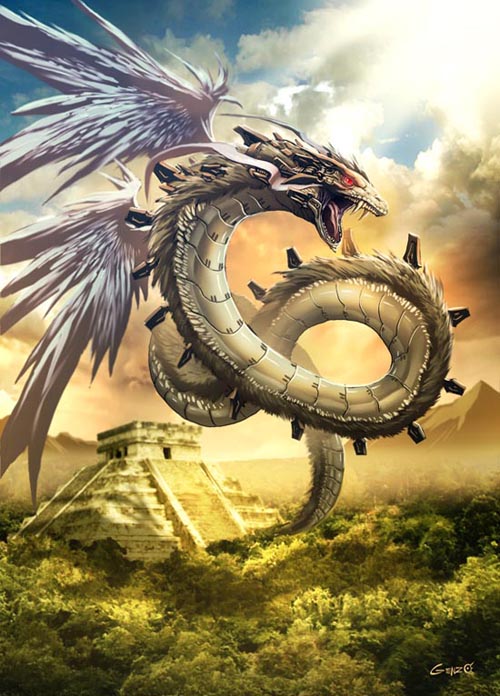






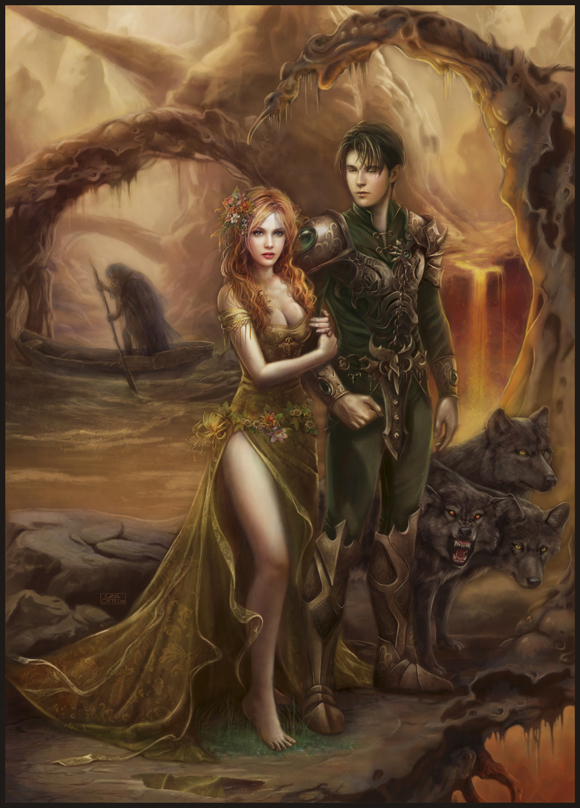










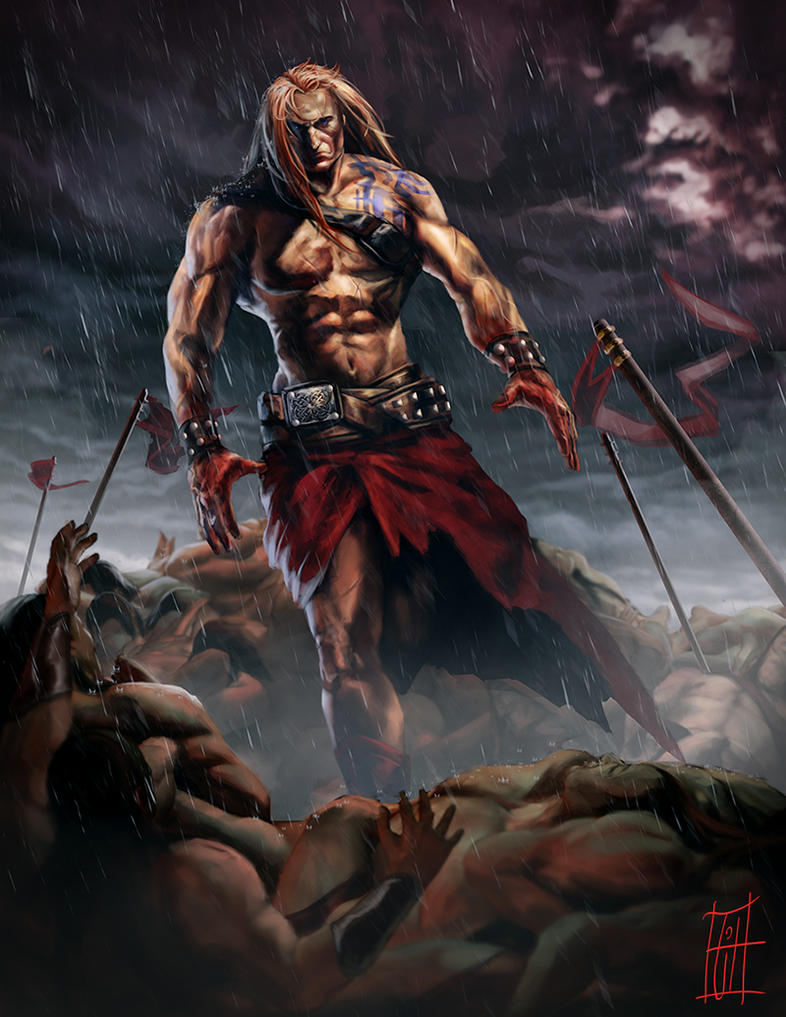




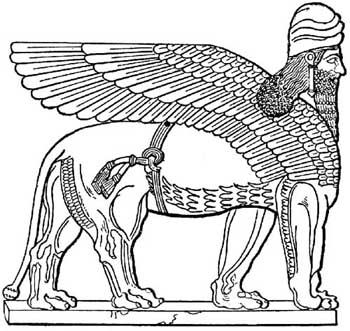

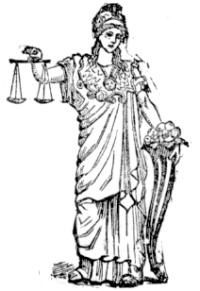

 Linear Mode
Linear Mode
